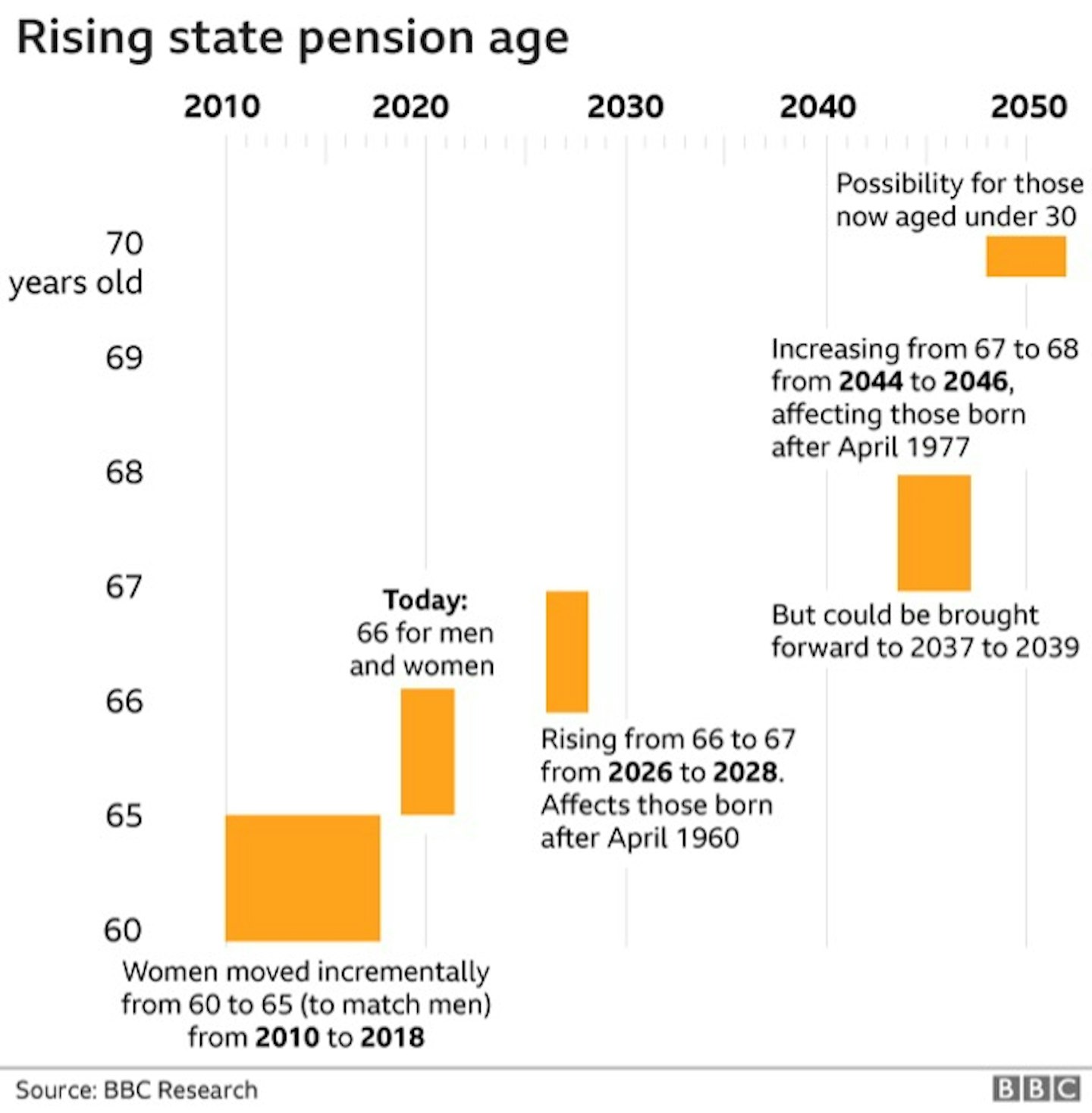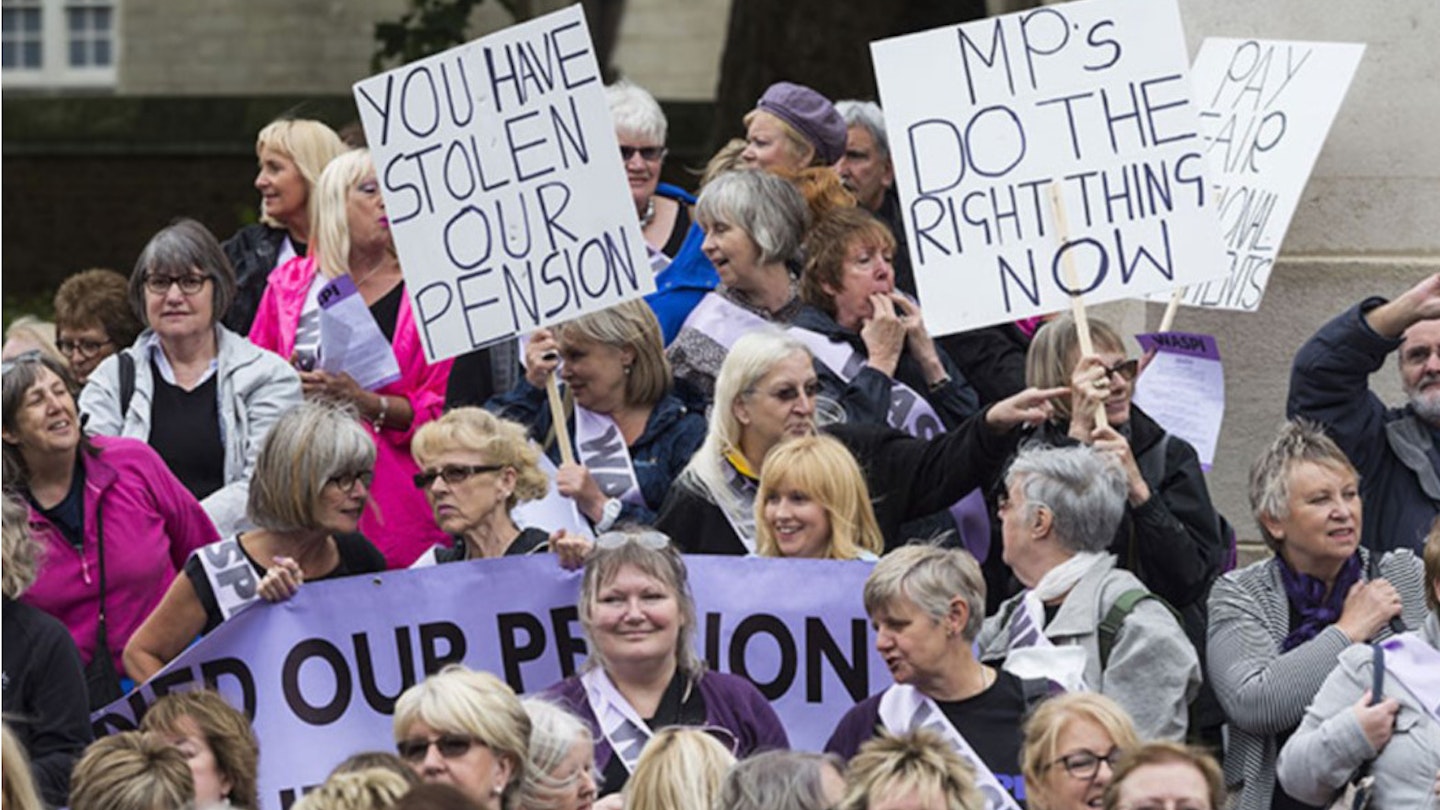A recent Parliamentary Ombudsman ruling that Government officials were too slow to tell many women they would be affected by the rising state pension age, marks a significant victory for the Waspi (Women Against State Pension Inequality) campaign.
The finding brings the prospect of compensation closer for thousands of women born in the 1950s who have long been furious about the issue.
Angela Madden, who chairs the Waspi campaign, said: "The findings reinforce what we, unfortunately, knew all along; that the DWP failed to adequately inform 3.8 million 1950s-born women that their state pension age would be increasing.
"These women have been waiting for many years for compensation. We cannot wait any longer. We are calling on the government to agree fair and adequate compensation rather than allow what has become a vicious cycle of government inaction to continue."
Judges at the Royal Courts of Justice in London initially dismissed the case - denying claims that the pension changes were discriminatory on the grounds of both sex and age combined.
According to the judges, “There was no direct discrimination on grounds of sex, because this legislation does not treat women less favourably than men in law,” they said. “Rather it equalises a historic asymmetry between men and women and thereby corrects historic direct discrimination against men.”
Report to show scale of state pension underpayment blunder
In another pensions related error, the National Audit Office is expected to release a report on Wednesday 22 September on the estimated underpayment of state pension to married women who reached state pension age before 2016.
The errors refer to married and divorced women as well as those over 80 who were entitled to uplifts in their state pension.
Some women retiring under the basic state pension system were entitled to an automatic uplift in their state pension when their husbands reached age 65.
In many cases this did not happen, and women had to actively claim it before the uplift was applied.
Other women have missed out on state pension uplifts because they did not tell DWP about their divorce.
Helen Morrissey, senior pensions and retirement analyst at Hargreaves Lansdown:
“There is an expectation that the state pension you receive is what you are entitled to but in this instance, this was clearly not the case. A combination of manual error and a complex system means thousands of women have missed out on payments that could have made a real difference to their standard of living in retirement.
Backed by the BackTo60 appeal, the changes affect around 3.8 million women born in the 1950s, who say they were not given sufficient notice to prepare for up to six years without their state pension.
Many of these women had no idea that they were even entitled to a higher pension and so did not ask about it and while the DWP has begun making repayments it is likely going to take some time before all those affected have been identified. Anyone who believes they might be affected should contact the Department for Work and Pensions.
While this issue affected women on the basic state pension which was replaced in 2016 it still serves as an important reminder to make sure you and your loved ones receive what you are entitled to.
Recent HL analysis showed 16% of state pension recipients were reliant on it and so it’s vital the right amount is paid - be sure to check your state pension forecast and query any anomalies – it could make an enormous difference to your retirement income.”
More about WASPI
WASPI was set up in 2015 by a small group of women passionate about campaigning on behalf of the 3.8 million women affected by changes to the state pension age.
Affecting those born on or after April 1951, the changes, first planned for in 1995, saw women’s state pension age raised from age 60 to 65, in line with men’s. It was then raised again to 66 in the 2011 Pensions Act.
However, hundreds and thousands of women say they weren’t properly notified by the Department for Work and Pensions (DWP) about this change in sufficient time to make plans or even at all! In fact, a Freedom of Information Request found the government waited until April 2009, 14 years after the 1995 Pension Act, to write to individual women about the changes and only a small percentage of women received letters in this first batch.
“Some women have lost as much as £45,000 and many have had to try find work or go on benefits,” a Waspi spokeswoman said. “Many women affected worked at a time when women weren’t allowed to join company pension schemes, meaning they have no other income.
“A lot also took on caring responsibilities in their 50s or gave up work due to poor health in the expectation they’d receive their pension at 60. Some divorce settlements were also calculated on projected incomes which included women receiving their pension at 60.”
The ombudsman's initial finding of maladministration by the Department for Work and Pensions (DWP) centres on this delay in providing direct information to this group of women.
While some women were aware of the general policy change, they did not know it would affect them personally.
The ombudsman said that letters should have been sent directly to these women more than two years earlier than they were. For some, the delay was much longer.
"We have found that DWP failed to act quickly enough once it knew a significant proportion of women were not aware of changes to their state pension age," said Amanda Amroliwala, chief executive of the Parliamentary and Health Service Ombudsman.
"It should have written to the women affected at least 28 months earlier than it did. We will now consider the impact of these failings, and what action should be taken to address them."
While WASPI aren’t against equalising the state pension age between men and women, their message to the government has always been clear. “We would like fair transitional arrangements, meaning a non-means-tested bridging pension, paid as a percentage of the full State Pension, to cover the period between 60 and the new state pension age.”

Waspi has the support of dozens of MPs from across political parties and a number of debates have already taken place in Parliament on the issue.
Whereas Waspi has called for bridging payments, the separate Backto60 group has campaigned for the state pension age for women affected to be returned to 60, and for these women to be refunded the pensions they had "lost" owing to the changes.
The ombudsman has no power to do so, but it can recommend compensation is paid to those affected by the DWP's maladministration.
It is unable to recommend any change in policy, which could have brought much larger sums in compensation. A series of court decisions found in favour of the government in terms of the changing pension age itself.
There is no timeline for the remainder of its investigations, but it is planning to move as quickly as possible.
Work out when you'll qualify for state pension with this useful calculator.
Find out how to become a member of the WASPI campaign.
Read more popular articles
The documents you can shred and the ones you should NEVER destroy
